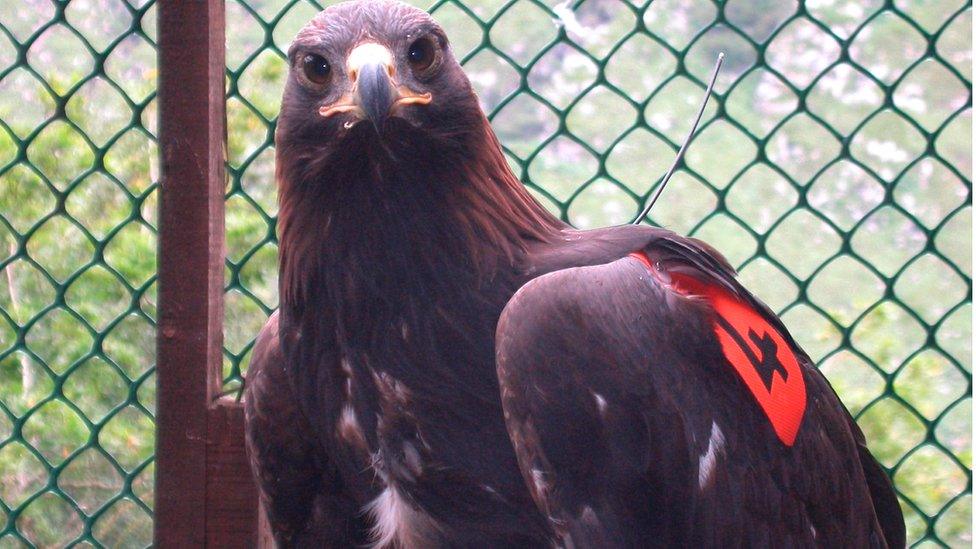First white-tailed eagles breed in 150 years
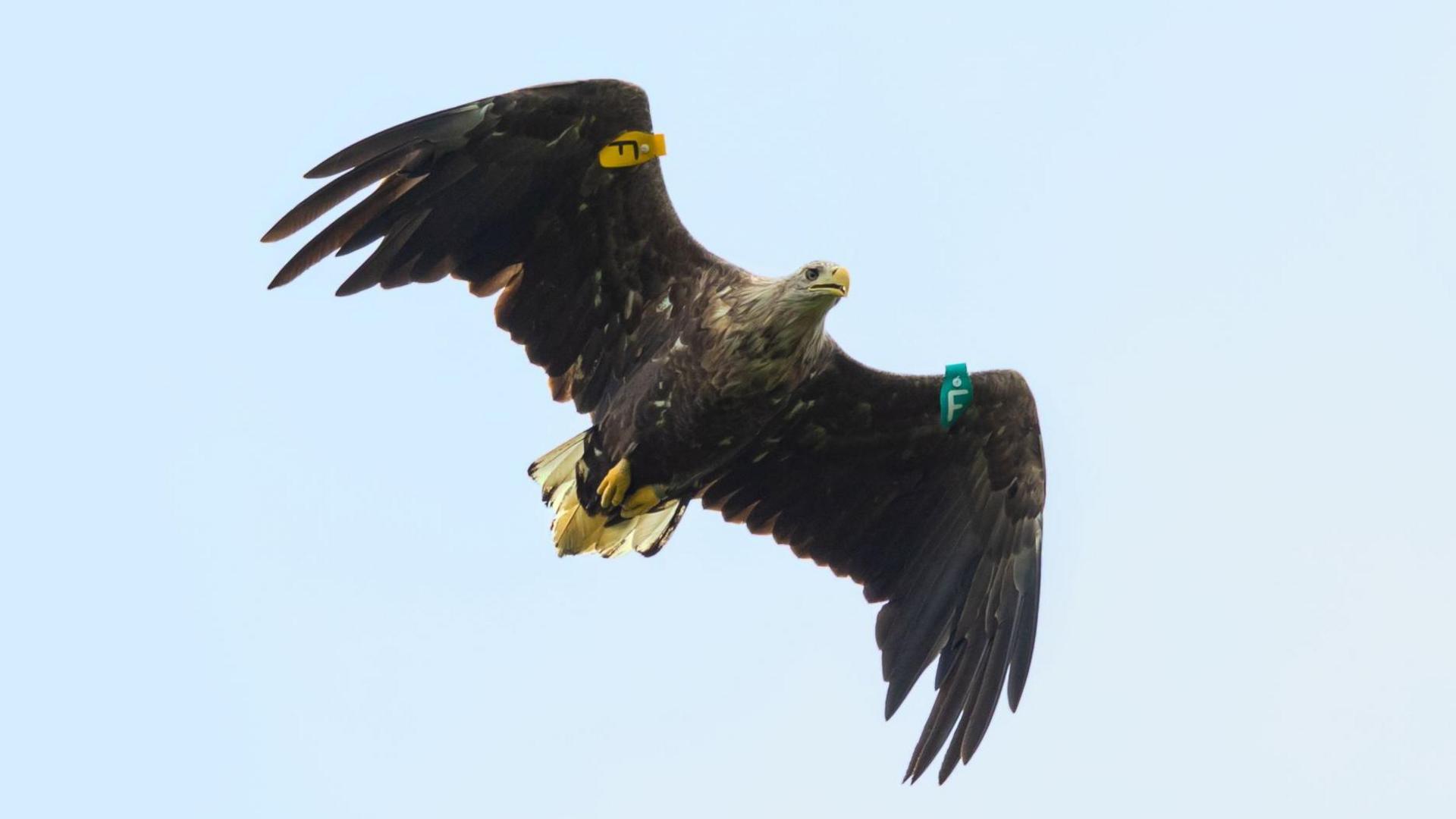
The white-tailed eagle is the UK’s largest bird of prey with a wingspan of up to 2.4m
- Published
A pair of white-tailed eagles in County Fermanagh have become the first to breed in Northern Ireland in more than 150 years.
The birds are four years old and were released on the shores of Lough Derg, County Tipperary in 2020.
White-tailed eagles were reintroduced to Ireland by the Golden Eagle Trust (GET) and National Parks and Wildlife Service (NPWS) between 2007 and 2011.
News of the discovery was welcomed by the Northern Ireland Raptor Study Group (NIRSG) and Royal Society for the Protection of Birds (RSPB).
The white-tailed eagle, or ‘sea eagle’, is the UK’s largest bird of prey, standing at almost 1m tall, with a huge wingspan of up to 2.4m and a distinctive white tail, as their name suggests.
They can live to over 20 years of age, and usually begin breeding at five years old.
The conservation effort was to secure a viable population following extinction from Ireland in the late 19th century.
From 2007 to 2011, 100 eagle chicks were brought from Norway and released in Killarney National Park, County Kerry.
Phase two of the reintroduction, by NPWS, continued in 2020 with more young birds released at a number of sites across Ireland.
Each was wing-tagged, with colours relating to their year of birth and many were fitted with satellite tags to track their locations.
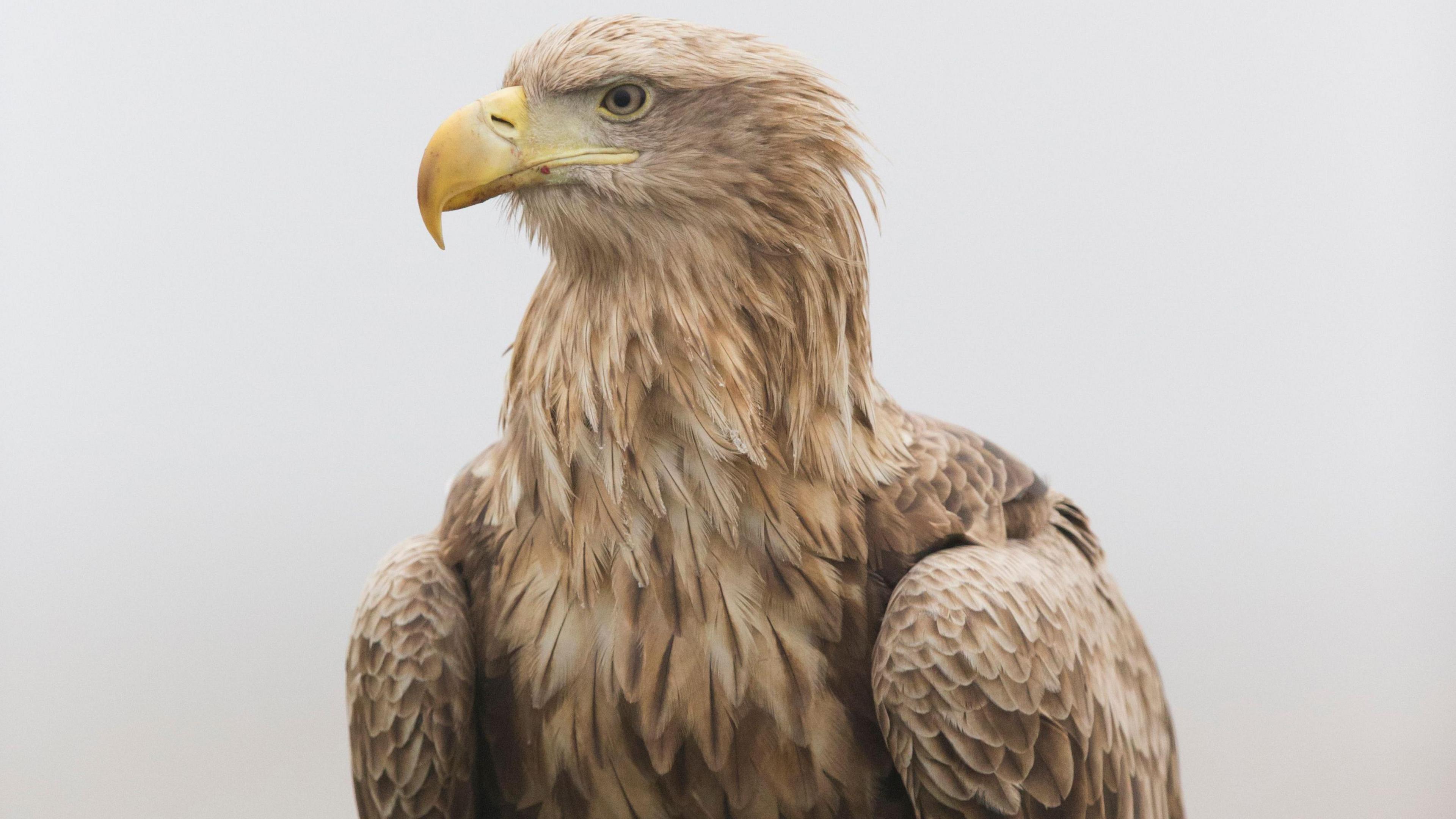
White-tailed eagles depend on the availability of large, mature trees in undisturbed areas
'Adrenalin rush'
Dr Eimear Rooney from NIRSG said: “The confirmation of this eagle species breeding in Northern Ireland corrects a multi-generational absence, symbolising the restoration of a once extinct species and highlighting the importance of wetlands, woodlands and farmland habitats on which many of our raptors depend.
“From reviewing satellite data provided by NPWS we had an idea that the birds were nesting, but with young eagles nothing is guaranteed.
"I can’t describe the adrenalin rush the moment I saw the chick earlier this year and confirmed that the birds were not only nesting but had successfully reared a chick,” she said.
'Testament to the power of conservation'
White-tailed eagles formerly bred across the UK and Ireland but are now one of the rarest species and listed as species of Conservation Concern.
In July 2023, it was confirmed that two white-tailed eagles found dead in County Antrim were poisoned.
Their remains were discovered near Glenhead Road between Ballymena and Larne in mid-May.
Dean Jones, Investigations Officer from RSPB NI said: “The return of breeding white-tailed eagles to Northern Ireland is a true testament to the power of conservation and really showcases the awe-inspiring resilience and adaptability of our natural world."
"The poisoning of the two white-tailed eagles in Glenwherry in May 2023 was devastating, however, to have this pair breeding successfully, under the protection of a caring local farmer, really illustrates how humans and birds of prey can exist in harmony", he added.
'Conservation successes'
Dr Marc Ruddock, from the NIRSG, said that they have been "anticipating this for a few years" and that reintroduction programmes have resulted in "real conservation successes across the Island of Ireland".
"It’s a great result for the dedication and hard work of many individuals for many years and testament to the resilience of nature and wildlife in its capacity for restoration and renewal if given the space and habitats to thrive", he added.
Gregory Woulahan, Operations Director from RSPB NI, added: "It is hoped this chick will reach adulthood and return to breed in 4-6 years boosting the population of these birds alongside creating tourism opportunities for the rural economy and the implementation of further efforts to boost and restore spaces for nature."
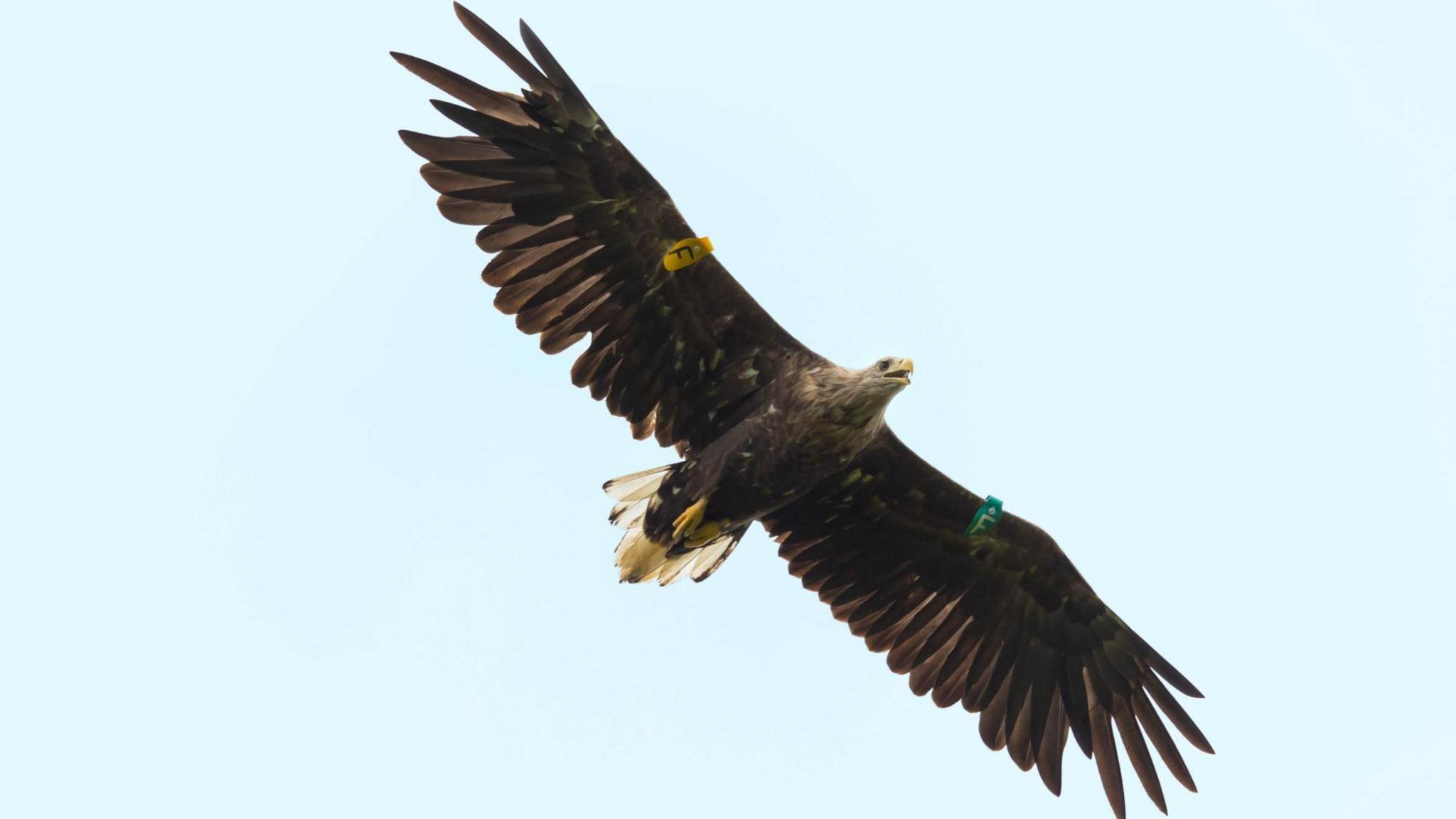
Released birds were wing-tagged, with tag colours relating to their year of birth
According to the RSPB, white-tailed eagle chicks fledge after 10-12 weeks and remain reliant on their parents for a further 5-6 weeks.
They largely eat fish, but also take various birds, rabbits and hares.
A special licence is required to disturb nesting white-tailed eagles, visit nest sites or take photos or videos at nest sites.
- Published17 May 2023
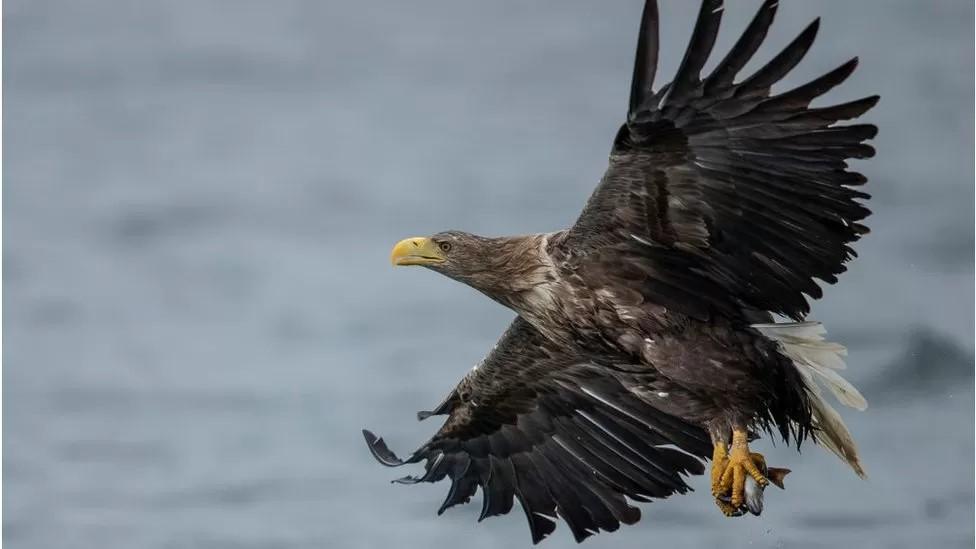
- Published7 July 2023
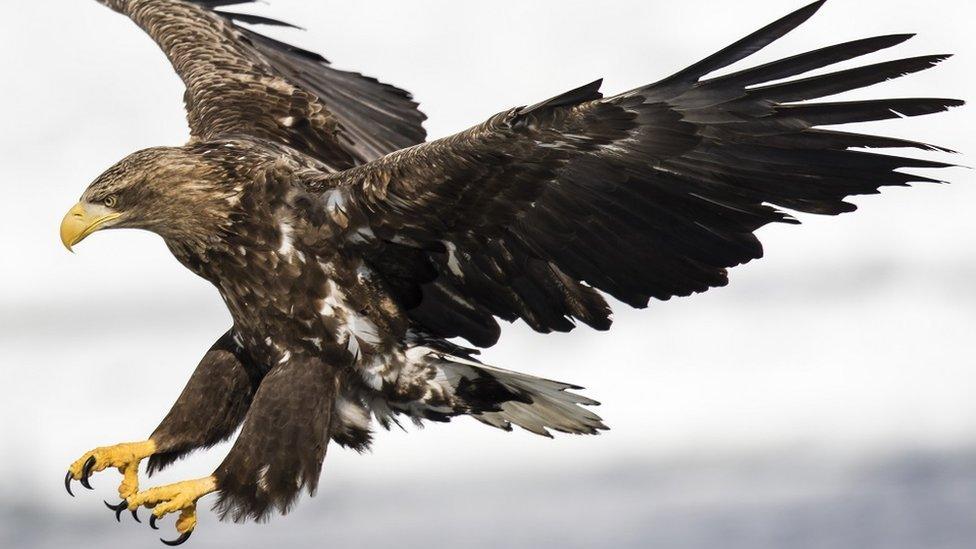
- Published9 April 2022
